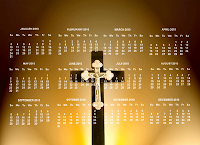What is the distance between you and God? Monday’s Meditation suggested it’s not nearly as far as we might think. Paul, speaking to a group of people in Athens who were completely alienated from God, told them God was not far from any of them. Where did he get such an idea? I’d like to suggest that Paul got this idea from his personal experience and the history of his people.
If there was ever a candidate for the wrath of God, Paul’s your man: a Jew who had missed the Messiah; a religious cop bent on dragging apostate Hebrews back to Jerusalem to face the music. Jesus took Paul’s persecution of the people of the church personally: asking, “Why have you persecuted me?” Yet when Jesus confronted Paul on the road to Damascus it was a confrontation of grace, not judgment. The good shepherd has left the ninety-nine and gone after the one who had wandered away.
Imagine Paul, struck blind, sitting alone in a strange city, forced to re-think his religious convictions. He had given his life to study the Hebrew scriptures. He was considered a rising star in Judaism. He had been taught by the best and put his faith into action as an orthodox bounty-hunter. Then, after encountering Jesus personally, he sat in darkness and wrestled with one thought: everything know is wrong. Years later, as Paul stood at the marketplace of ideas in Athens, he suggested that God is close at hand to each of us: the sensual, the cerebral, the religious, the skeptic, the clueless and the pagan. I suspect Paul could make such a statement because he had experienced the reality.
All it takes is one real encounter with Jesus to make us re-think our ideas about God. Not religious argument or philosophical persuasion, but encounter. I suspect that in the Damascus darkness Paul also began to re-interpret the history of his people as revealed in the Old Testament:
- After Adam and Eve choose to eat from the tree of knowledge of good and evil they discovered their nakedness and tried to hide from God. Far from rejecting them, God himself went searching for them.
- When Cain was angry with his brother, it was Yahweh who tried to talk him down from the ledge. Even after the murder of Abel, Yahweh not only heard the voice of the victim, he placed a mark of protection on the oppressor.
- When Jacob cheated his brother and lied to his father, God did not reject him--though it would have been understandable. Instead, God revealed Himself at Bethel and said, "I am with you and will watch over you wherever you go . . . I will not leave you until I have done what I have promised you.” (Genesis 28:15)
The story of Israel goes on and on: each chapter reveals that God himself is the seeker, and his people are the sought. King David, who abused the privilege and grace of God as much as any modern politician, discovered a Faithfulness beyond human reasoning, a Presence not far from any one of us:
You have searched me, LORD,
and you know me.
You know when I sit and when I rise;
you perceive my thoughts from afar.
His amazing song asked:
Where can I go from your Spirit?
Where can I flee from your presence?
David came to the conclusion:
If I say, “Surely the darkness will hide me
and the light become night around me,”
even the darkness will not be dark to you;
the night will shine like the day,
for darkness is as light to you. (Psalm 139)
By the time Paul had re-calibrated his understanding of God, he was able to celebrate God’s goodness and affections: “For I am convinced that neither death nor life, neither angels nor demons, neither the present nor the future, nor any powers, neither height nor depth, nor anything else in all creation, will be able to separate us from the love of God that is in Christ Jesus our Lord.” (Romans 8: 38-39) Paul, the legalist, had become the Apostle--not only of God’s grace--but of his presence and goodness as well.
Paul had discovered that the Father has always wanted to be among us, and he will not allow anything to get in the way. If sin separated us from the Father, then the Father provided a remedy. It’s more than a legal transaction: the record shows that God will go to any length to be with us. If, as Isaiah says, “your iniquities have separated you from your God; your sins have hidden his face from you,” (Isaiah 59: 2) it is because we are the ones in hiding. He has not gone anywhere. He is still “not far from any one of us.”
I wonder now how many of us need time and space to re-calibrate our view of the Father. How many of the events in our personal history would point to God’s desire to be with us, if only the scales would fall from our eyes? I’m determined to find out, and you’re invited on the journey, too.








